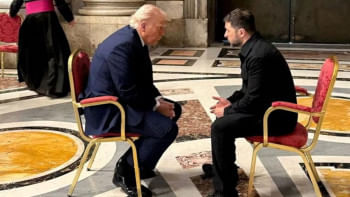Regulator okays IGW cartel
The telecom regulator yesterday endorsed a cartel of international gateway operators.
The cartel that will come into being tomorrow allows forming a two-tier clearing exchange to gain control over pricing in the billion-dollar international incoming call termination market.
Bangladesh Telecommunication Regulatory Commission issued a directive to all mobile phone operators, IGW operators and interconnection exchange (ICX) operators who are related to the international call termination process.
According to a new topology, IGW operators will be divided into two groups: tier 1 and tier 2.
Tier 2 operators will transmit international incoming calls to telecom operators through ICX operators, while tier 1 gateways will only send their entire calls to tier 2.
However, analysts said the act of creating the cartel is a violation of law. "It's a fundamental violation of the competition act," said Abu Saeed Khan, senior policy fellow at LIRNEasia, a Colombo-based think tank.
The process may bring stability to the market but at the same time will create scope for some big players to earn huge amounts of money, industry insiders said.
Currently, the minimum price for international incoming calls is 1.5 cents a minute, but no upper limit has been set. Of the amount, 40 percent goes to BTRC, 17.5 percent to ICX operators, 22.5 percent to phone companies, and the rest to IGW operators.
"The seven IGWs who will terminate calls are politically powerful. They will now set new call termination rates, which may be higher than the current rates. But this additional money will not be shared with anybody," said an insider, requesting not to be named.
Mir Nasir Hossain, managing director of Mir Telecom, which is a tier 2 operator, said the market will be stabilised due to the move.
But insiders said the cartel will increase the termination rate and non-resident Bangladeshis will have to bear additional costs or reduce calls to relatives at home.
Currently, on average 11 crore minutes of international calls come into the country a day.
According to the new model, IGW's portion of earning will be deposited in a single account before distributing it at a 1:1.9 ratio. If tier 1 operators receive Tk 1, tier 2 operators will get Tk 1.9 from the account. At the same time, 7.5 percent of the money will go abroad for "market development".
Several IGW operators also raised questions over the revenue sharing model, but those were ignored. "Powerful people are involved in the process," said the managing director of an IGW operator.
The Daily Star contacted senior officials of BTRC, but they refused to comment on the matter. Mobile and ICX operators said they raised objections against the cartel several times and asked for protection from the regulator.
Grameenphone said it has serious concern over the issue as different IGW operators owe hundreds of crores of taka to them, and at the same time, they want stability in the market.
"If illegal call termination can be reduced through this process, we will welcome it," said Mahmud Hossain, chief corporate affairs officer of Grameenphone.

 For all latest news, follow The Daily Star's Google News channel.
For all latest news, follow The Daily Star's Google News channel. 



Comments